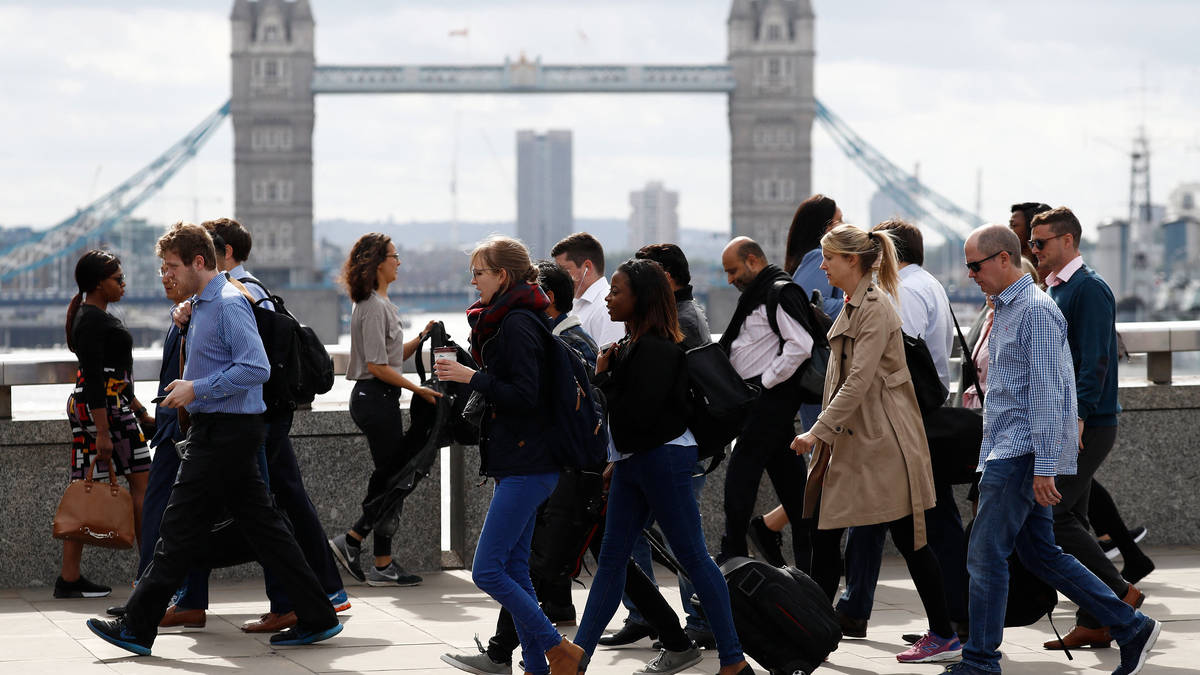Commuters walk across London Bridge in London.
Picture:
Getty
Unemployment is up and earnings are falling, new data from the Office for National Statistics has revealed.
The rate of UK unemployment rose to 4.8% in the three months to August, up from 4.7% in the three months to July.
Meanwhile, UK average regular earnings growth fell to 4.7% in the three months to August.
This puts the unemployment rate at a four-year high as the economy continues to falter under Sir Keir Starmer‘s Labour government.
ONS director of economic statistics Liz McKeown said: “After a long period of weak hiring activity, there are signs that the falls we have seen in both payroll numbers and vacancies are now levelling off.
A view of the Bank of England in the city of London this morning.
Picture:
Alamy
“We see different patterns across the age ranges with record numbers of over-65s in work, while the increase in unemployment was driven mostly by younger people.”
The ONS has warned these figures should be treated with caution as it continues to overhaul its labour market survey.
It added there were signs of the jobs market downturn “levelling off”, with a rise in UK workers on payrolls – up 10,000 between July and August, following a minor increase the previous month, though early estimates signalled a 10,000 drop during September to 30.3 million.
It comes after retail sales growth slowed in September as rising inflation and a potentially taxing Budget weighed on households ahead of Christmas, figures suggest.
Total UK retail sales increased by 2.3% year on year in September, against growth of 2% in September 2024 and above the 12-month average growth of 2.1%, according to British Retail Consortium (BRC) and KPMG data.
Rachel Reeves, Chancellor Of The Exchequer,.
Picture:
Getty
Food sales were up 4.3% year on year, driven largely by inflation rather than volume growth.
British businesses have highlighted fears of tax hikes in Rachel Reeves’ upcoming budget as a cause for meagre growth and lacklustre employment numbers.
Despite this, the Chancellor is being urged to pass a one-off wealth tax to find the billions she needs in her budget next month.
A think tank has said that a windfall one-off tax on existing wealth would be better than an annual levy.
An “unexpected and credibly one-off assessment” of existing wealth could be an “economically efficient way to raise revenue” and would avoid changing people’s future behaviour, the Institute for Fiscal Studies said.
The Government is under pressure to balance the books ahead of November’s autumn statement amid warnings of a black hole estimated to be as much as £50 billion in the public finances.

